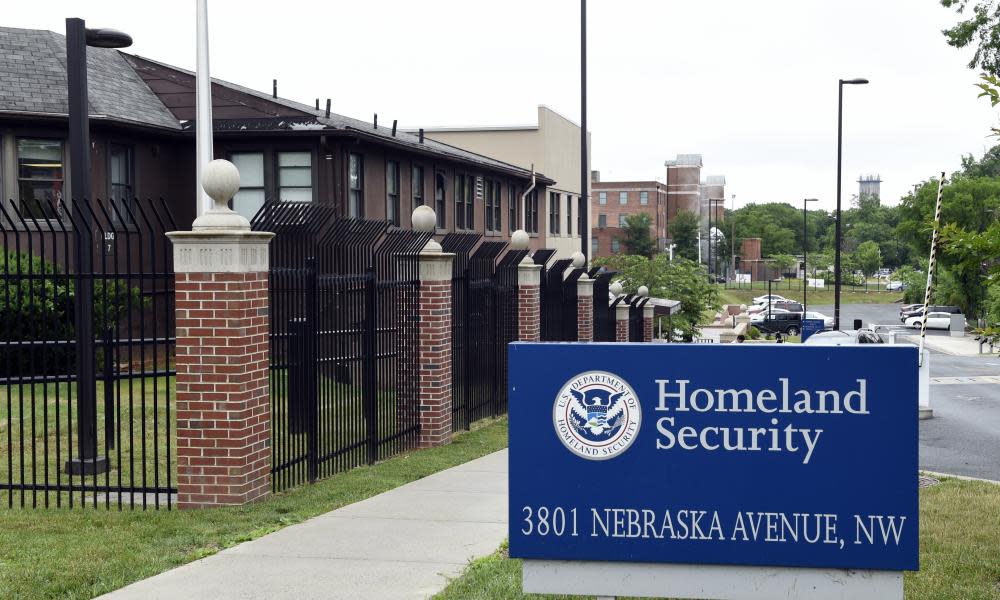Homeland security may have violated court order during travel ban – report

The Department of Homeland Security was almost entirely unprepared for implementing Donald Trump’s January 2017 travel ban, and appears to have violated federal court rulings during the order’s enforcement, a stinging government review has found.
A report by the department’s inspector general revealed that homeland security – the agency largely responsible for implementing the ban – was given no opportunity to contribute to the draft of Trump’s executive order. According to the report, homeland security officials were “caught by surprise” when the president signed it on 27 January, ordering its immediate enforcement.
The ban, which targeted refugees and visa holders from several Muslim majority countries, led to chaos at airports around the US and was later blocked by a series of court rulings which found grounds for violations of the constitution.
Trump’s order was eventually rescinded but the administration subsequently issued two more limited bans, which were, at times, also been blocked by court rulings.
On Friday the supreme court announced it would consider a challenge to Trump’s third ban. The nine justices in the nation’s highest court had already allowed the ban to go into effect during their review.
The inspector general’s report into the first ban found that: “Answers to critical questions necessary for implementation were undefined when the EO [Executive Order] issued. No policies, procedures and guidance to the field were developed. This meant that Homeland Security and other other government departments were forced to “improvise policies and procedures in real time”.
John Kelly, then the secretary for homeland security and now Trump’s chief of staff, had seen only two drafts of the order before it was signed, according to the report. At the time Trump signed the order Kelly was traveling, so responsibility for implementing the ban fell to Kelly’s acting deputy secretary, Chip Fulghum.
According to meeting minutes reviewed by the inspector general, Fulghum had not even received a copy of the signed executive order when the department hurriedly began to decide how to enforce it.
The report also found that even after court rulings blocked the implementation of Trump’s order, US customs officials stationed outside America had prevented 30 targeted travelers from entering the US. The inspector general found the action had “effectively circumvented” the courts, a decision described in the report as “troubling”.
The report makes clear that homeland security disputed this specific finding, but adds: “our conclusions remain unchanged.”
The inspector general found no evidence to confirm allegations of serious abuse at the hands of customs officials enforcing the ban on travelers. But the report highlights the case of one Iranian visa holder, detained at Los Angeles International airport while the ban was in full effect, who claimed her treatment by individual officers was “quite harsh”.
The report also notes that many visa holders affected by the ban declined to speak to investigators.
The report was issued under the office of John V Kelly, the agency’s acting inspector general, but was completed in October, when John Roth was in the role. Roth later resigned, a decision he says was not related to the release of the report.

 Yahoo News
Yahoo News 
